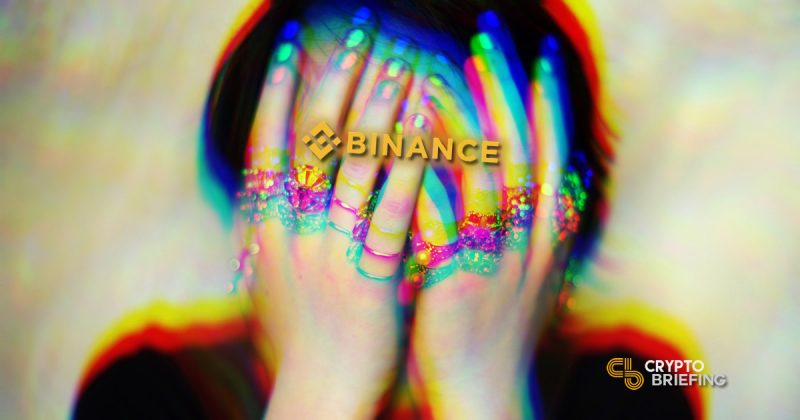
Leaked Documents Indicate Binance May Have Evaded US Regulations
Binance CEO says that U.S. exchange was not created with ulterior motives.
Binance may have used its American subsidiary to evade regulations, according to leaked documents obtained by Forbes. Binance, however, contests the allegations.
Did Binance “Bait and Switch” Regulators?
Forbes alleges that Binance established BAM Trading (now Binance.US) in 2018 with an ulterior motive: to distract regulators by feigning attempts at compliance.
The report describes Binance’s strategy as a “bait and switch” tactic. The company supposedly made minor efforts to comply with U.S. regulations while also instructing potential customers on how to evade geographic restrictions through VPNs and other means.
Forbes also suggests that Binance aimed to undermine anti-money laundering (AML) regulations, outlined strategies to distract numerous regulators, and joined the Department of Homeland Security’s Cornerstone Program to find regulatory loopholes.
The document has been dubbed the “Tai Chi” document as an allusion to the martial arts principle of using an opponent’s own weight against him.
In other words, the strategy leverages the complexities of U.S. regulation to their own detriment.
Forbes has not disclosed the source of the leak. However, it claims that the document was authored by Harry Zhou—a former Binance employee who is now co-founder of Koi Trading, a San Francisco-based OTC trading desk.
Changpeng Zhao Rejects Claims
Binance CEO Changpeng Zhao has denied Forbes’ claims. He says that the article “hinges on a 3rd party document” that was not produced by a current or former employee.
“Anyone can produce a strategy document, but it does not mean Binance follows them,” Zhao stated on Twitter. “We do not acknowledge the alleged document.”
Zhao adds that Binance complies with various regulatory bodies and law enforcement agencies, adding that it works with AML companies such as Ciphertrace and Elliptic. He affirmed that Binance.US is a legitimate subsidiary with “very strong restrictions and operating procedures in place.”
Given that Forbes has not released the leaked document, it is impossible to conclude which account is correct. Though Forbes has contacted regulators, their comments have not fully confirmed its allegations.
Meanwhile, investigators such as the FBI have declined to comment, according to Forbes.
The document is reportedly circulating among law and accounting firms, introducing the possibility that the document may be leaked to the general public in the future.
Update: Binance.US has denied the allegations. “The article references an alleged document presented in 2018 to Binance Holdings Limited regarding potential plans to create a United States subsidiary as a way to allegedly flout United States regulation. We have no record of anyone at Binance.US ever receiving that alleged presentation.” It also denies that it is a Binance subsidiary, but rather an “independent and separate company.”
Note: This article originally ran with the headline Leaked Documents Indicate Binance Deliberately Evaded US Regulations. The headline has been changed to reflect uncertainty about the leaked documents.
